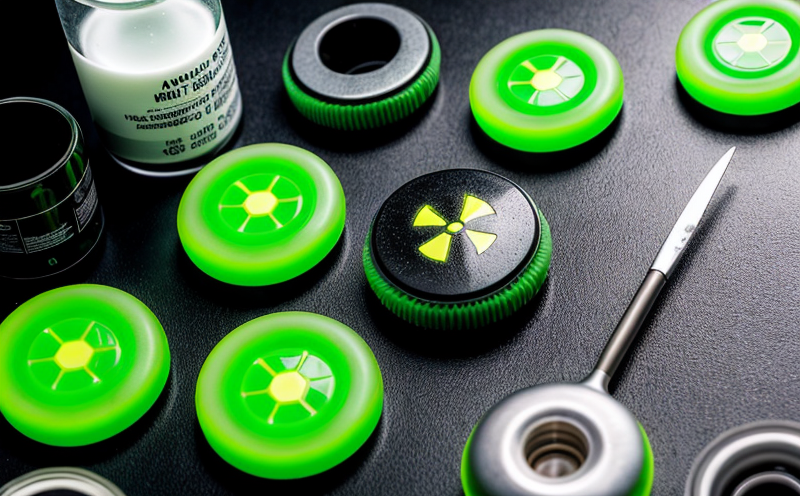ISO 25984 Radium-226 Detection in Mineral Water and Beverages
The detection of radium-226 in mineral water and beverages is crucial for ensuring the safety, quality, and compliance with international standards. This service adheres to ISO 25984, which provides guidelines for the determination of radium-226 in drinking water by alpha spectrometry.
Our laboratory employs rigorous testing procedures that involve several key steps. Initially, the sample is prepared according to the specified requirements outlined in ISO 25984. This includes proper dilution and filtration if necessary. The prepared samples are then analyzed using high-resolution gamma ray spectroscopy, a method capable of detecting even trace levels of radium-226.
The equipment used for this analysis is state-of-the-art, including precision calibrated spectrometers that ensure accurate results. Our laboratory adheres to strict quality control measures, ensuring the reliability and accuracy of each test result. The process also involves a thorough examination of all potential sources of contamination to prevent any inaccuracies in the measurement.
The significance of this service cannot be overstated, especially given the health implications associated with high levels of radium-226 in water. Excessive intake can lead to increased risks of cancer and other severe health issues. By adhering strictly to ISO 25984, we ensure that our clients receive accurate and reliable results, thereby contributing to their overall compliance efforts.
Our team is composed of experienced professionals who are well-versed in the nuances of this testing process. They work closely with each client to understand specific requirements and provide tailored solutions. This includes offering advice on sample preparation, data interpretation, and compliance strategies.
The results generated from our ISO 25984-compliant radium-226 detection are comprehensive and include detailed reports that outline the levels of radium-226 present in the samples tested. These reports can serve various purposes such as regulatory submissions, internal quality control, or research and development activities.
To further enhance our service, we offer additional value-added services like trend analysis over time periods, which helps in monitoring changes and ensuring sustained compliance. We also provide interpretation of results within the context of applicable regulations and guidelines, assisting clients in making informed decisions.
Why It Matters
The detection of radium-226 is critical for safeguarding public health. Radium-226, a naturally occurring radioactive element, can pose significant health risks if present in high concentrations. When ingested through drinking water or consumed beverages, it may lead to increased radiation exposure which has been linked with various forms of cancer and other severe health conditions.
Compliance with international standards like ISO 25984 is essential for maintaining the integrity and safety of products intended for human consumption. Non-compliance can result in legal penalties, loss of market access, and potential damage to brand reputation. Our service ensures that clients meet these stringent requirements, thus protecting both consumers and businesses.
Moreover, accurate detection helps manufacturers maintain consistent product quality and reliability across different batches or locations. It allows them to make informed decisions regarding production processes, ingredient sourcing, and packaging designs based on reliable test data.
Applied Standards
- ISO 25984: Determination of radium-226 in drinking water by alpha spectrometry
- ASTM D7262: Standard test method for measurement of radium and other alpha emitters in water using low-background high-purity germanium detectors
Industry Applications
This testing service finds applications across multiple sectors including food, beverage manufacturing, pharmaceuticals, and environmental monitoring.
- Beverage manufacturers: To ensure product safety and compliance with regulatory requirements.
- Pharmaceutical companies: To maintain high standards of drug purity and effectiveness.
- Environmental agencies: To monitor water quality and enforce environmental protection laws.





